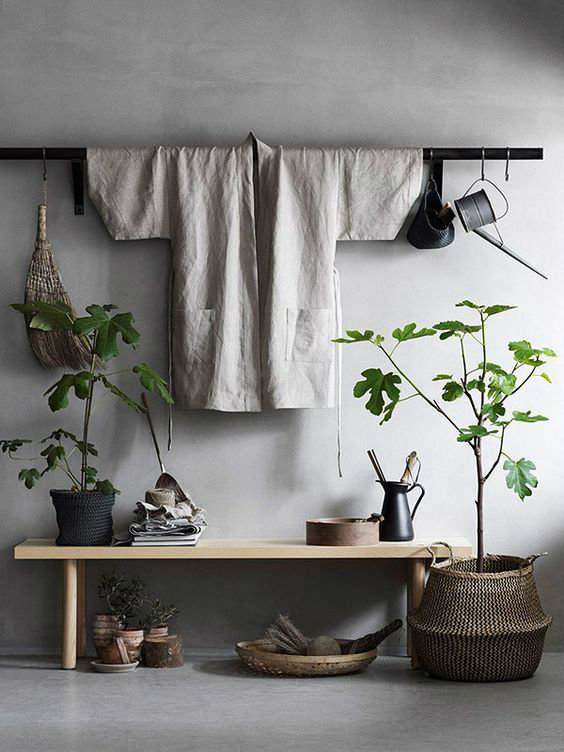
20 Oct Meet Japandi – Child of Elegance and Minimalism
The term “Japandi” is derived from the words Japanese and Scandinavian — needless to say, this newly emerged style is a mélange between these two cultures. In fact, experts say that 2017 is the first year that Japandi era officially begins! Why is Japandi becoming a movement and making huge waves in interior design world? Read on to find out the essence of this gorgeous fusion and how to achieve the look! (Cover Photo Source: Italian Bark)
[Japanese wabi-sabi]
The practice of wabi-sabi is the celebration of finding beauty in nature’s imperfections, which has long been the core of Japanese interior design. Being at peace with the grains and pores that natural materials inevitably have without over-polishing them is to respect what mother nature has to offer, and to be at one with this world. Some staple representations include rough pottery, untreated wood et cetera.

Source: House Beautiful

Source: KEN Architects | Kenichi Kohmura

Source: KEN Architects | Kenichi Suzuki
[Scandinavian Minimalism]
We are probably all familiar with the simplicity and practicality of Nordic designs: the sleek clean lines and the mixture of natural materials such as oak, hemp, and leather have won over the hearts of many people. Scandinavian interior style is the perfect testament of “less is more”.

Source: Stephanie Powell

Source: Stephanie Powell
[Japandi]
Having the understanding of both cultures, it becomes clear why the marriage of Japanese and Scandinavian interior designs is such a harmonious unison of exceptional aesthetics and functionality. Their child “Japandi” inherits the Nordic practical attitude and the Japanese love for balance and contrast, with their common traits still shining through: simplicity, airiness, warmth, and serenity based on a quiet appreciation to life.

Source: Small Spaces

Source: Daily Telegraph
To create a Japandi feel, start with a warm and neutral palette in the background — timber floors, shades of white ranging from ivory to light grey, and organic elements such as hemp, stone, and ceramics sophisticatedly blend together to form effortless elegance.

Source: Decor Dots

Source: AMM Blog
Material and colour choice won’t be the only elements paying homage to mother nature in a Japandi-inspired home. The philosophy is to decorate with bold simplicity, which makes indoor plants essential due to the strong Zen influence in this trend. The use of greenery further reinforces Japandi’s connection to nature.

Source: Hannah in the House

Source: Hitta Hem
Excessive decorations are not common in neither Scandinavian nor Japanese homes. Therefore, expressing your personal style can resort to introducing textural contrast among key furniture pieces to maintain simplicity.

Source: Stephanie Powell

Source: Stephanie Powell
Japandi holds potential in becoming a new classic. In the years to come, keep an eye out on Japandi — it is THE style that is yet to make many ripples in the interior design world.

Source: Italian Bark

Source: Stephanie Powell
▼Get this look:
*Disclosure: Our articles may contain affiliate links. If you buy something through one of these links, you won’t pay a penny more, but we will receive a small commission to keep us going. Thanks for your support!









